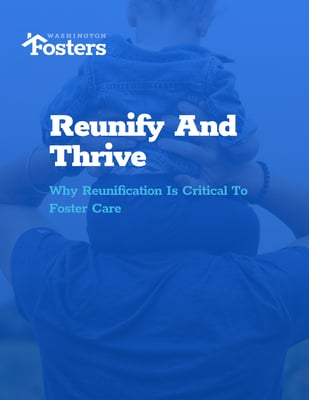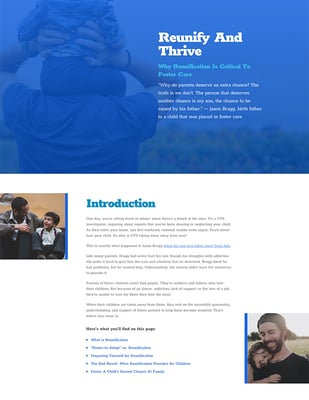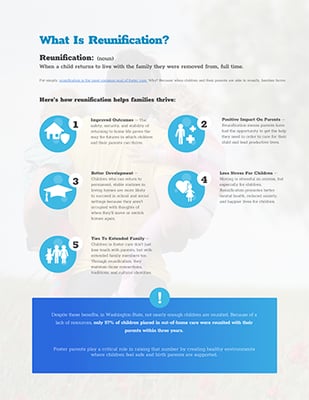Imagine you have an eight-year-old foster child.
He’s only been placed with you for a few weeks, but already you’re experiencing challenges you didn’t expect. His teachers tell you that he acts up in school, won’t focus, and gets into fights with other kids. At home, he’s usually quiet and distant. You want to help, but you simply don’t know how.
What you might not realize is that this behavior is more than likely due to past trauma.
Trauma is exceedingly common among children in out-of-home care. It stems from instances of abuse, but more commonly, from neglect and specific experiences like being separated from parents and siblings suddenly, without knowing why.
It’s important for foster parents to understand that children’s behavior can be impacted by trauma, even at a young age. As they get older, the way their trauma manifests itself may change, even though the source doesn’t.
Foster parents who can identify trauma behaviors and triggers are better suited to helping their child toward recovery.

What Does Trauma Look Like?
Trauma comes in all shapes and sizes and every child is different. Even if two children experience the same type of trauma at the same age, the way it affects their behavior could be completely different.
Download Now: Reunify And Thrive: Why Reunification Is Critical To Foster Care
With that said, there are some behaviors that are more common among traumatized children. Here are just a few examples, grouped by age:
From 0 to 5 years old
- Prone to tantrums
- Clingy or extremely shy
- Slower to reach development milestones
From 6 to 12 years old
- Frequent crying or sad emotions
- Headaches and stomachaches that arrive without cause
- Behaviors typical of younger children, like thumb sucking
From 13 to 18 years old
- Getting into fights at school
- Problems with authority, refusing to follow rules
- Denying that trauma happened
- Talking about past traumas incessantly
Remember, these are just examples. Just because a child gets into a fight or doesn’t want to go to bed on time doesn’t mean it’s a behavior stemming from specific trauma.

The Problem With Trauma: What Not To Do
Foster parents want what’s best for any child that’s placed with them. That’s their whole reason for becoming licensed. But sometimes those good intentions end up working against trauma and its triggers.
For example, you might want to feed your child the healthiest food possible to ensure they’re getting all the nutrition they need. But what if they’ve never had fresh vegetables? Serving something strange could bring up bad memories of being forced to eat food they didn’t like or not having meals at all.
Foster parents must be prepared to adapt and commit to learning about a child’s trauma triggers.
Also, recognize that trauma behaviors are often diagnosed as mental health problems like ODD or ADHD and treated with medication. The problem is, such treatment options don’t address the root causes of behaviors derived from traumatic experiences. Rather, they just attempt to manage the symptoms.

How Foster Parents Can Help
Foster parents have an opportunity to provide children with a stable, safe, and positive environment. By being patient and flexible, foster parents lead children on the path to recovery.
To help you identify which behaviors do result from trauma and how to address them, it’s important to get educated. Take training courses, talk to your child’s therapist if they have one, and look for other opportunities to learn how you can best support children dealing with trauma.
Here are four types of services in Washington State that offer support for foster parents with children who are dealing with past trauma.
1. Catholic Community Services — Family Behavioral Health
Offers counseling services and free foster parent training sessions focused on helping children manage their emotions. If CCS isn’t available in your area, talk to your social worker who can make referrals to counseling services on your behalf.
2. Facebook Groups
There are many Facebook groups that provide support for foster parents. One of those groups is the Foster Parents Association of Washington State (FPAWS) — a non-profit dedicated to supporting foster families across Washington State with direct services and legislative initiatives.
3. Support Groups
Dozens of support groups meet monthly throughout Washington State to offer foster parents a chance to get together in person with other families, make connections, and discover new resources.
4. Local Foster Care Agencies
Your local foster care agency is one of the best resources for learning more about helping children through past trauma. They can help you through the licensing process and provide you with a comprehensive list of support groups and non-profits suited to your needs.
One of the most powerful ways foster parents alleviate trauma is to support reunification between children and birth parents. Learn how by reading our free guide about reunification in Washington.







